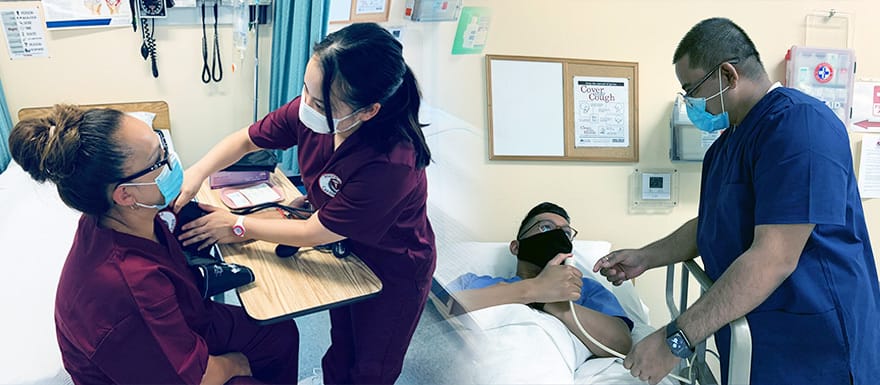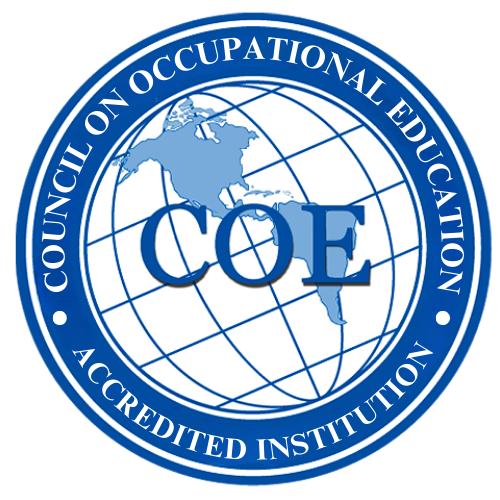Patient Care Technician Career

Are You Considering a Career as a Patient Care Technician?
Thinking about a career as a Patient Care Technician? Want to start a new career in the medical field? Then a career as a Patient Care Technician may be the answer to your questions. Patient Care Technicians enjoy fulfilling work helping patients with their daily activities while playing an essential role of the medical team. They interact with other medical professionals and have the capability to work in several types of healthcare facilities. A multi-skilled Patient Care Technician with education and laboratory procedures and clinical skills training as a Medical Assistant, Nurse Assistant, and Home Health Aide all in one are more equipped to get hired and work in a variety of out-patient or in-patient healthcare settings. If you are considering a career as a Patient Care Technician, but you would like more information, then continue reading.
What is a Patient Care Technician?
You may be wondering what exactly is a Patient Care Technician? Patient Care Technicians are like Nursing Assistants, Medical Assistants, and Home-Health Aides. They are all three professions in one. They assist the nurse and care for elderly, disabled, and patients who may be recovering from a wide range of injuries or illnesses. Patient Care Technicians help with daily activities such as; bathing, dressing, feeding, and transporting patients. Additionally, Patient Care Technicians can administer injections and complete laboratory work as needed. Patient Care Technicians are the jack of all trades when it comes to their scope of practice. Having these skills gives them an advantage when searching for potential employers. Patient Care Technicians have the option to advance their careers in other healthcare careers such as; Nursing, Medical Billing and Coding, Ultrasound Technician, and more.
Where Do Patient Care Technicians Work?
Patient Care Technicians can work in a variety of healthcare facilities that may include; hospitals, private doctor’s offices, long-term care facilities, or home-health. The skills Patient Care Technicians poses offer them a network of potential work environments for example; Patient Care Technicians can care for the elderly by having experience, current credentials, or training, because of this, they can work in assisted living facilities, long-term care facilities, or nursing homes just to name a few. A career as a Patient Care Technician exposes you to different sectors of healthcare and you learn additional skills while on the job. This career can be built up or if you choose, you can utilize the skills and experience you learn from being a Patient Care Technician to your next healthcare related career. Patient Care Technicians are valued members of the healthcare team and are needed in many types of medical facilities that are not limited to one medical specialty.
How to Become a Patient Care Technician?
If you have made the choice to start a new and rewarding healthcare career as a Patient Care Technician, it is important to know what to expect when it comes to starting your journey. Some schools require you to have a CNA or Certified Nurse’s Aide Certificate or previous experience prior to enrolling in a Patient Care Technician Program. Additionally, there are other programs that may include CNA training as a part of the curriculum. Secondly, search for a school in your area that offers a Patient Care Technician Program and obtain the appropriate education and training. It is important to note that Patient Care Technician Programs can take up to 1 year to complete, so understand what you are committing to before signing up. Once you receive the proper training and education required by your state you can sit for the CPCT or Certified Patient Care Technician exam and earn your credentials. It is encouraged that you become certified because it shows employers you have the necessary skills and education to perform the job duties required as a Patient Care Technician. After earning your certificate, you are ready to go job searching and land your first official job as a Certified Patient Care Technician.
Interested in Becoming a Patient Care Technician?
After reading about what a Patient Care Technician is, where Patient Care Technicians work, and how to become a Patient Care Technician, are you interested in becoming a Patient Care Technician? Patient Care Technicians are an important part of caring for patients and are essential medical support members in a medical environment. The unique skills they obtain give them the edge to stand out among similar medical professionals. Once you become certified by your state, the number of opportunities increase and the likelihood that you will achieve your dreams of working in the medical field is almost guaranteed. Becoming a Patient Care Technician means you are helping others, building your career, and gaining experience you can use in your future medical career. Additionally, this career can be achieved in under a year and with or without prior experience. If you are interested in pursuing a career as a Patient Care Technician then visit healthcarecareercollege.edu and speak with an admissions representative to get started today!
Is a Career as a Patient Care Technician Right for You? Get More Info…
If you’re interested in learning more about a career as a Patient Care Technician and exploring whether Healthcare Career College is right for you, fill out the form on this page to receive more information.
For immediate questions, call (562) 804-1239


